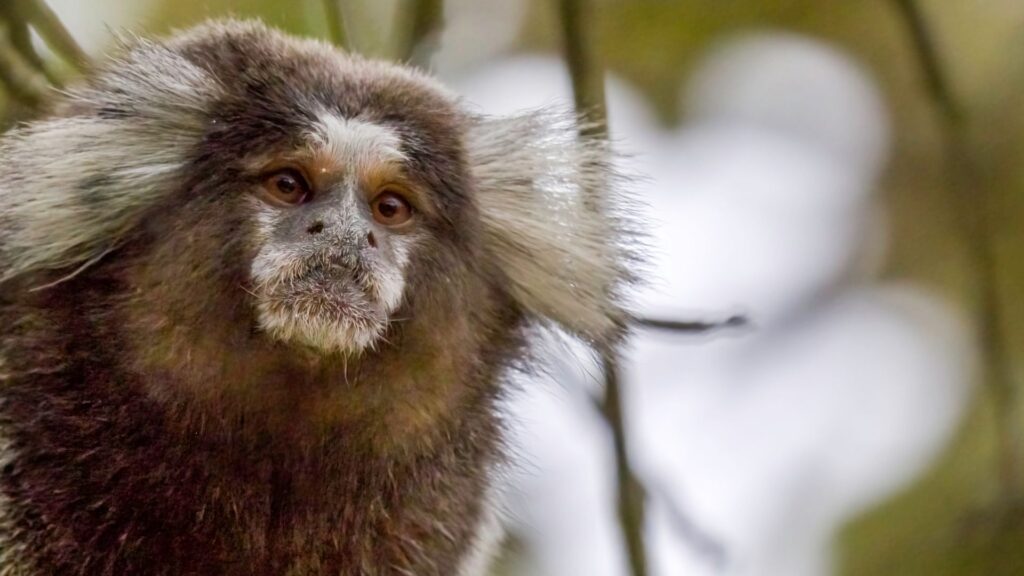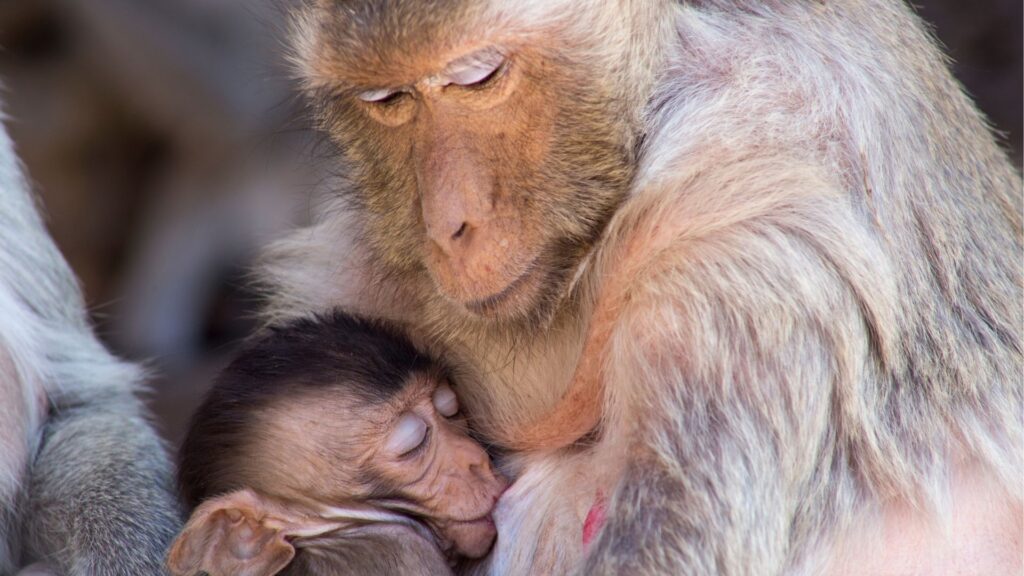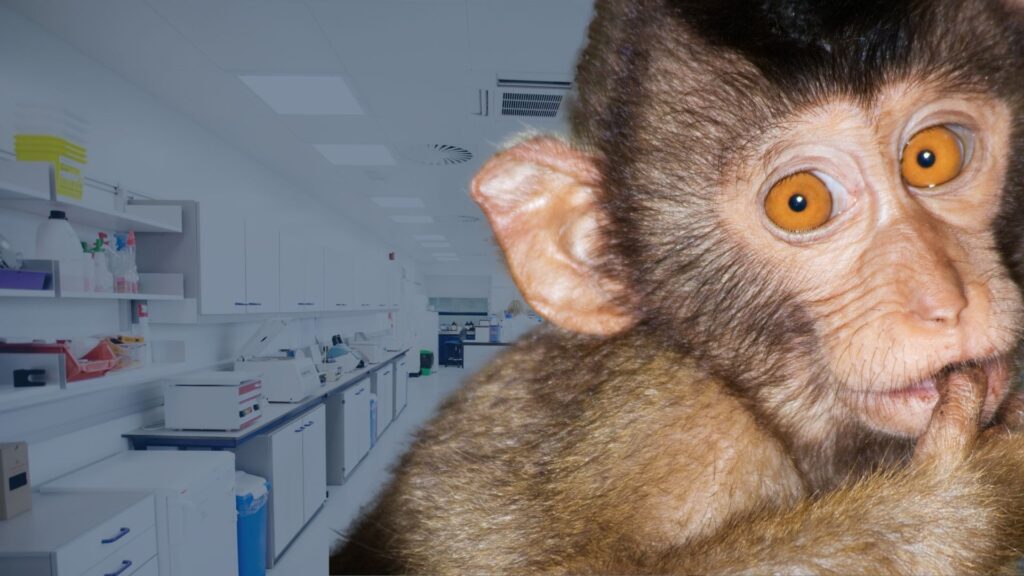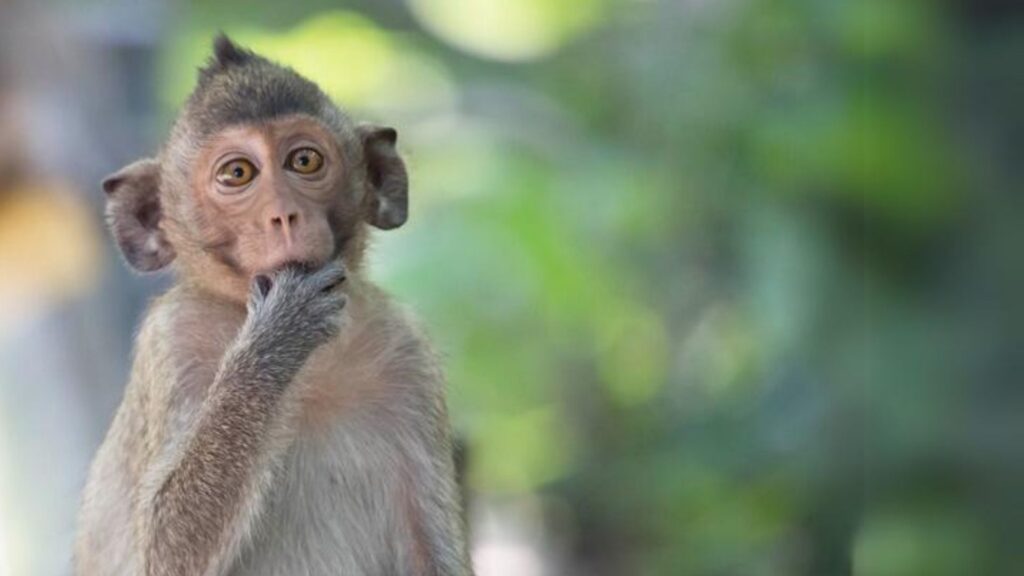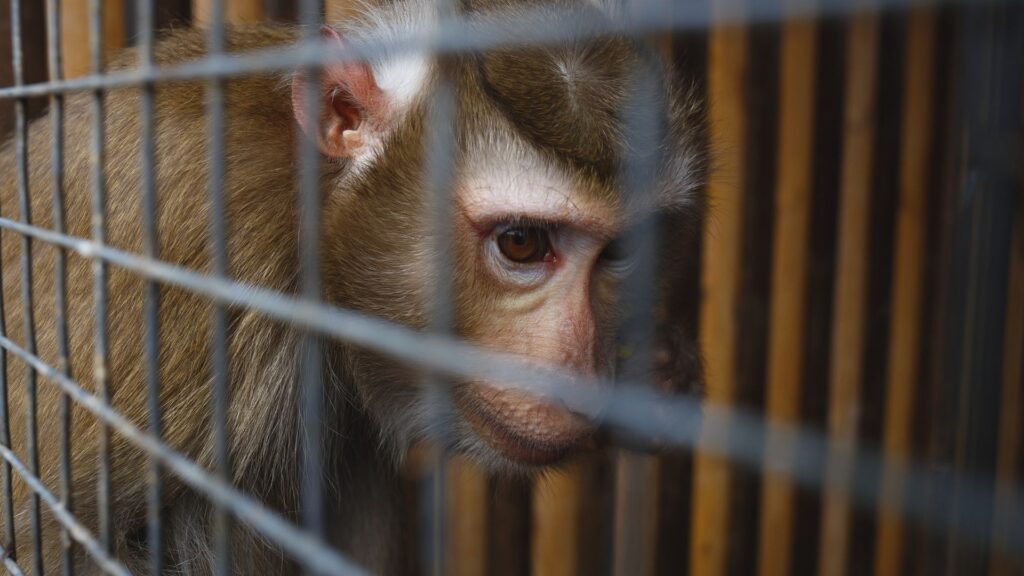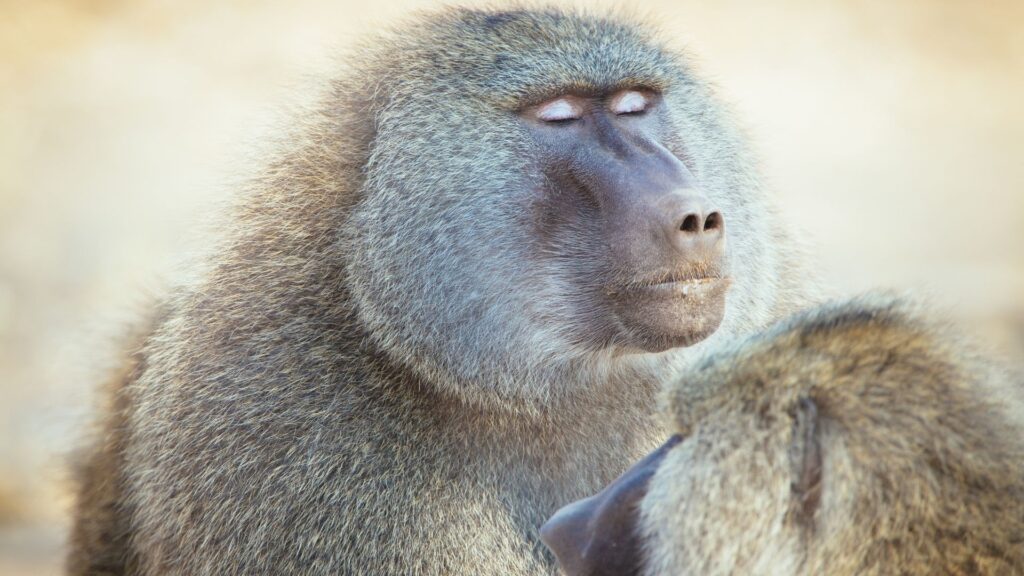Primate Experiment Resources
Discover an extensive selection of resources, which advocate for the cessation of primate experiments. These resources underscore the need for an urgent shift towards animal-free research methodologies.
A large number of experts in different fields of science, animal law, ethics and biomedical research advocate for a swift phase-out of the use of primates in scientific research.
These resources below offer a wealth of information about the prohibition of primate research, highlighting ethical considerations and the necessity for compassionate scientific advancement and a transition to ethical research practices.
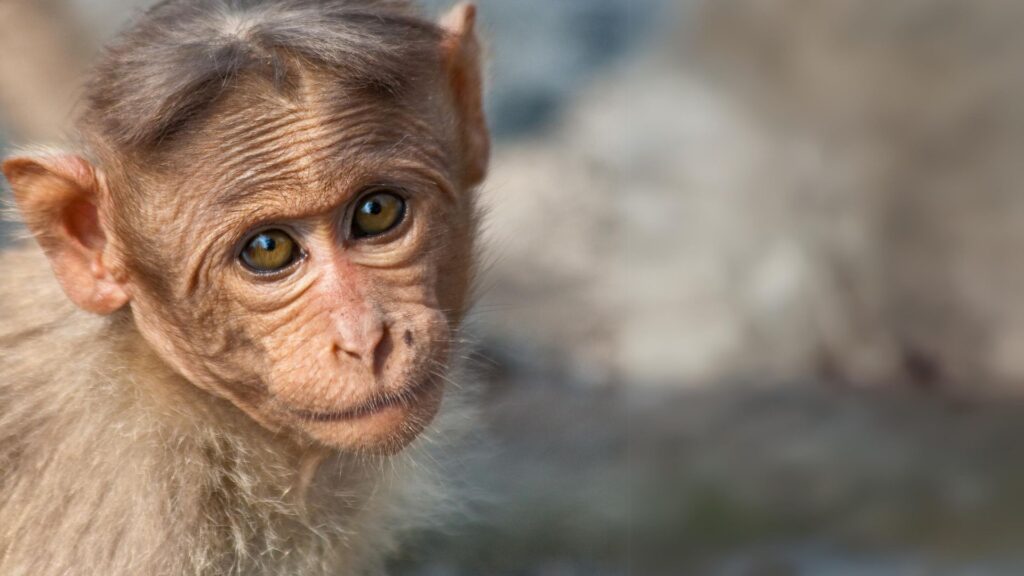
Funding Sanctuary Retirement for Nonhuman Primates
Erika Fleury’s article in the Animal Studies Journal highlights the growing need for reputable primate sanctuaries due to the increasing retirement of nonhuman primates from laboratories, entertainment, and the exotic pet trade. Sanctuaries, distinguished from zoos and private owners through rigorous accreditation, focus on providing lifelong care for primates rescued from exploitation. The article emphasizes the importance of early financial planning for primate retirement, proposing that research grants include funding for this purpose to ensure sanctuary sustainability.
For more information, you can access the article here.
Harrowing Stories of a Former Lab Worker Revealed in Podcast
In this podcast on YouTube for Dr Farad Harsini, former lab technician Madeline Krasno shares traumatic and harrowing stories about the nonhuman primates under her supervision. She highlights her journey from being a lab technician to founding JUSTIFY, an organisation advocating for humane scientific practices. JUSTIFY supports both current and former lab workers in transitioning to methods that do not harm animals or humans, aligning with Krasno’s vision for ethical science.
For more details, you can check out the podcast on YouTube.
Moving past animal experiments to understand human neurological disease
Richard J. Miller, Professor Emeritus at Northwestern University, argues that using animals for neurological disease research is outdated and incompatible with modern science. He points out the significant differences between animal and human brains, making animals unreliable models for human neurological diseases. With a 99.6% failure rate for Alzheimer’s drug development using animal models, he emphasizes the importance of human-based technologies, such as stem cell-based technologies and brain organoids.
Why Big Pharma keeps testing drugs on long-tailed macaques
Big Pharma’s reliance on primate experiments for drug testing persists despite the availability of more ethical, and advanced animal-free alternatives. Aaron Gell highlights the dire conditions these primates endure during transportation and testing, emphasising their intelligence and the ethical issues at play. The pharmaceutical industry, valuing non-human primates for their genetic similarity to humans, faces growing challenges from endangered species classifications, public backlash, and the emergence of animal free research technologies.
The history of primate use webinar
On 21st June 2023, Dr. Tom Quick from the Faculty of Arts and Social Sciences at Maastricht University presented a lecture on the role of Rhesus macaques in the development of the polio vaccine, focusing on the 1950s. He detailed the environmental and logistical challenges that arose from the increased demand for these primates in biomedical research. Quick’s talk illuminated the intertwined histories of laboratory animals, global logistics, and the polio vaccine, underlining the ethical and political complexities of using animals as scientific resources.
The good, the bad and the ugly of primate research
This event brought together experts from a broad range of academic backgrounds to discuss the current state of testing on non-human primates for medical research. In covering varied topics including bioethics, animal welfare, and medical necessity/applicability, this panel will allow audience members to learn more about the widely debated question: should we still be using nonhuman primates in medical research?
Panelists: Christine E. Webb, Larry Carbone, Katherine Roe, Erin Sharoni. Watch on Youtube.
Al Jazeera documentary: Monkey Business
101 East explores the surge in global demand for laboratory monkeys, spotlighting the ethical concerns and illegal trafficking spurred by China’s 2020 export ban. The investigation reveals a lucrative black market, with monkeys fetching up to $40,000, and implicates Cambodian officials in wildlife smuggling. Amidst calls from activists for humane practices, the documentary also highlights efforts towards alternatives to animal testing and rehabilitation for these primates, covering insights from the US, India, France, and Cambodia.
German authority rejects primate brain research on ethical grounds
In Bremen, Germany, a groundbreaking decision was made by the health authority to reject a university researcher’s application for conducting brain research on non-human primates, citing ethical concerns. The authority concluded that the animals’ suffering could not be justified by the expected scientific gains. This marked a significant stance against such experiments, with Doctors Against Animal Experiments Germany supporting the decision. UPDATE: Under the University’s appeal, the Administrative Court authorised further neurological research, albeit with some restrictions (April 2024)
Questioning research on animals: The scientific and ethical debate
Researchers Hope Ferdowsian and L. Syd M. Johnson criticise the reliance on primates for medical research, arguing it’s more about convenience than solid science. They discuss the ethical concerns and the translational shortcomings of animal research, pointing out the significant failure rates of treatments tested on animals when applied to humans. Reflecting on the historical shift towards animal research post-WWII, they advocate for a new paradigm focusing on ethically designed, patient-centred studies that prioritise human biology and needs over outdated animal models.
In the lucrative primate trade, enforcing law makes industry cry foul
The AWI Quarterly Fall 2023 issue exposes the conflict between the lucrative primate trade and law enforcement efforts to protect endangered species, highlighting the financial motives behind industry opposition to trade restrictions. Following the reclassification of long-tailed macaques as endangered, the National Association for Biomedical Research challenged this status, aiming to influence trade regulations. The article underscores the ethical and conservation concerns surrounding the primate trade, amplified by recent legal actions and industry pushback against regulatory measures.
More unexplained deaths of primates bred for medical research
NSW parliament inquiry into using primates and other animals in research
Read the notes and watch the public hearing for the New South Wales Parliamentary Inquiry into the Use of Primates and Other Animals in Medical Research. Animal-Free Science Advocacy calls for an immediate phase-out of primate research in New South Wales. We must adopt animal-free innovative research methods. The parliamentary inquiry’s findings underscore the moral and ethical dilemmas inherent in animal research, highlighting the availability of advanced and precise animal-free methods.
A look at the processes and obstacles to re-homing former laboratory primates
There are more and more efforts to find suitable homes or sanctuaries for animals formerly used in research. In this installation of “After the Lab” by TIPS Animal Law Committee, audience members will explore what that process looks like for primates, understand how the law can be a source of support or an obstacle for action, and identify some of the common pitfalls.
Animal-Free Science Advocacy Primate briefing: February 2025
The briefing from February 2025 critically addresses the ethical dilemmas and public opposition surrounding non-human primate experimentation. The complex social structures of primates make their use in research particularly contentious. Despite their close genetic relation to humans, major physiological and metabolic differences between humans and primates make their use in research often unreliable for translating results to human health. Animal-Free Science Advocacy advocates for the replacement of primate experiments with scientifically valid, non-animal methods, and calls for a ban on primate importation for research, alongside the establishment of a sanctuary for ex-laboratory animals.
Other resources
Arguments against NHP research and why replacements must be the focus – Dr Jarrod Bailey, Animal Free Research UK at the USDA 10th Annual 3Rs Symposium (youtube)
PeTA’s legal complaint to the NIH re First Amendment right to communicate with primates in the laboratory of Elizabeth Murray PhD at NIMH
Ethics, Efficacy and Decision Making in Animal Research (YouTube RSPCA webinar recording). Prof Lawrence A Hansen, Depts of Neurosciences & Pathology, University of California San Diego *Highly recommended
The Dirty Business of Monkey Laundering – Fake permits and under cover informants. Source: Bloomberg Investigates 6/12/2024 video
Promise to end experiments on monkeys must end – Janneke Hogervorst, The Netherlands 1/7/2024
Invasive Research on Non-Human Primates – Time to Turn the Page 19/10/2021
Primate Research in Australia (podomatic.com) HRA Podcast 26/2/2021
Differences between humans and primates – study reveals unique features of human metabolism 17/12/24 (Doctors Against Animal Experiments
Primate research – YouTube Should we experiment on primates? University of Winchester, Centre for Animal Welfare – Presenter: Dr Andrew Knight 5/2/2021
Monkey brain tests at Italian University set to continue | Cruelty Free Europe 4/2/2021
Monkeys suffer ‘extremely cruel’ torture as scientists try to simulate human depression – Daily Star 26/1/2021
Stolen-from-the-wild-the-use-and-abuse-of-mauritian-monkeys-for-research 28/10/2020
Animal welfare groups call for an end to Australian charity funding of baby monkey vision experiments – Humane Research Australia Press Release 24/9/2020
Animal welfare groups call for an end to Australian charity funding of baby monkey vision experiments – Humane Research Australia Press Release 1/9/2020
BREAKING: WCW lawsuit reveals secret videos of NIH monkey business – White Coat Waste Project December 2020
Lab Monkeys Have Holes Drilled in their Skulls at Belgian University – One Green Planet 28/9/2020
Rise for Animals Inside the Monkey Lab 16/8/2020
https://www.opb.org/article/2020/08/18/peta-releases-animal-research-videos-from-ohsu-it-received-in-lawsuit 29/8/2020
SC monkey facility Alpha Genesis gets coronavirus contract | Hilton Head Island Packet 19/07/2020
Mutilated Monkeys Forced to Weightlift After Brain Surgery | PETA 1/7/2020
Texas Biomed: Larger Primates Best Model in COVID-19 Vaccine Study (sanantonioreport.org) 2/6/2020
“Highest standards” are clearly not good enough. We need to end primate experiments NOW! 16/7/19
‘Why Rhesus monkeys are used for most vaccine trials’ | India News – Times of India (indiatimes.com) 21/5/2020
World Day for animals in laboratories 24 April 2020 – YouTube 24/4/2020
Primate researchers need to explore alternative methods | TheHill 5/3/2020
Sydney Baboons Remind Us Animal Testing Needs Scrutiny In Australia (junkee.com) 28/2/2020
Monkeys on Neurotoxic Diet May Be New Animal Model for ALS Research (alsnewstoday.com) 27/2/2020
Former research chimps rejoice at being set free for the first time (nypost.com) 8/2/2020
Should aging lab monkeys be retired to sanctuaries? | Science | AAAS (sciencemag.org) 5/12/2019
Monkey lab staff say horror tests worthless as results faked to please managers – Daily Star 12/11/2019
US lawmakers propose plan to reduce primate research at National Institutes of Health (nature.com) 14/5/2019
Chinese monkey experiments ignite debate over ethics versus medical pay-off (news.com.au) 28/4/19
Planet of the Apes test mixing human DNA with monkeys will bring ‘unintended consequence’ Daily Star, 20/4/19
Animal rights group sues UC Davis, demanding videos of alleged abuse of monkeys (sfchronicle.com) 27/1/2019
FDA research monkeys retire at Florida animal sanctuary – CNN 4/12/2018
Why are U.S. neuroscientists clamoring for marmosets? | Science | AAAS (sciencemag.org) 23/10/2018
Monkey on the run after escaping Louisiana research laboratory and dashing into woods (yahoo.com) 17/9/2018
Secret Monkey Business. Blog 25/7/18
American Airlines: Monkey escapes from cage at airport | Video (news.com.au) 22/5/2018
Texas Research Facility Baboons Escaped from Was Investigated for Animal Abuse (newsweek.com) 18/4/2018
Brain lesions induced in baby marmosets to study eye-hand coordination, HRA case study 28/3/18
FDA reviewing animal studies: Squirrel monkeys die in addiction study. CNN, 2/2/18
Outrage over VW monkey diesel tests reflects changing public opinion. National Geographic, 30/1/18.
Monkey clones created in the lab. Now what? National Geographic, 24/1/18.
Decades of cruel monkey experiments at the University of Sydney
Your tax dollars – used for cruel primate experiments
Lab Chimps Are Moving to Sanctuaries — Slowly – The New York Times (nytimes.com) 7/11/17
FDA halts monkey research denounced by Jane Goodall as ‘shameful’ – The Washington Post 25/9/17
Dr Jane Goodall publicly confronts primate experimenter Prof. Roger Lemon. 3/2/17
Animal rights lawyer argues for chimpanzees to have rights | Daily Mail Online 14/3/17
Paul Toohey: Animal testing is causing them to suffer. But is it helping humans? | Daily Telegraph 8/5/17
Reconsidering Research on Primates (chronicle.com) 4/12/16
“The stuff of nightmares”: US primate research centres investigated for abuses. The Guardian, 29/10/16
New guidelines for primate research will not protect our closest relatives. Media release, 26/9/16
Testing on non-human primates in neuroscience research is no longer justifiable. The Independent, 8/9/16.
Non-human primates in neuroscience research: The case against its scientific necessity. Bailey, J and Taylor, K. (2016). Alternatives to Laboratory Animals, 44: 43-69
Monkey-based research on human disease: The implications of genetic differences. Bailey, J. (2014). Alternatives to Laboratory Animals, 42: 287-317
It’s time to end the use of non-human primates in research and testing – Antidote Europe’s submission to the Scientific Committee on Health, Environmental and Emerging Risks.
Unexpected and Unexplained Deaths at Primate Research Facility, Gippsland, Victoria
Call to end monkey brain experiments as research deemed scientifically redundant and misleading
Dutch Parliament passes motion to phase out non-human primate research
NIH to review its policies on all nonhuman primate research
FRAME’s response to Australia’s proposed ban on importing monkeys for research
Baboons bred for experiments die from disease. trauma at secret breeding colony Sydney Morning Herald 31/1/16
Baboons used in Frankenstein-like medical experiments Sydney Morning Herald 24/1/16
Inquiry: Prohibition of Live Imports of Primates for Research Bill 2015
A Longitudinal View of Primate LIfe in Two American Laboratories
Inside the Monkey Lab: The Ethics of Testing on Animals VICE News, July 2015
The use of great apes in research
Monkey-based research on human disease: the implications of genetic differences. J. Bailey, November 2014
NHMRC Policy on the care and use of non-human primates for scientific purposes
The Case for Phasing Out Experiments on Primates, Kathleen Conlee and Andrew Rowan, Ethics of Medical Research with Animals – Science, Values and Alternatives, 2012
Replacing Primates in Medical Research – An expert report by: Dr Hadwen Trust / FRAME / St Andrew Animal Fund
The monkey farm: primates being bred for experiments, The Age, 25/11/12
Defence force supports monkey tests, The Courier, 23/11/12
A comparison of two studies – Pigtail macaques and HIV/AIDS research – Jacqueline Cuthbertson, BAppSc(health)RN RM Grad Dip Comm.Dip.Journalism, 6/11/12
Primates and HIV Research – Infecting our closest relatives – Jacqueline Cuthbertson, BAppSc(health)RN RM Grad Dip Comm.Dip.Journalism, 31/7/12
Same same but different – a look at primate research – Jacqueline Cuthbertson, BAppSc(health)RN RM Grad Dip Comm.Dip.Journalism,
An analysis of the Bateson Review of research using nonhuman primates – Ray Greek, Lawrence A Hansen, Andre Menache, Medicolegal and Bioethics, 2011
Toxic Waste: Ending the use of non-human primates in toxicity testing – Dr Andre Menache, Antidote Europe
The Replacement of Non Human Primates in Brain Research – Dr Andre Menache, One Voice, September 2010
The Beginning of the End for Chimpanzee Experiments? – Dr Andrew Knight, Philosophy, Ethics, and Humanities in Medicine, 2008



